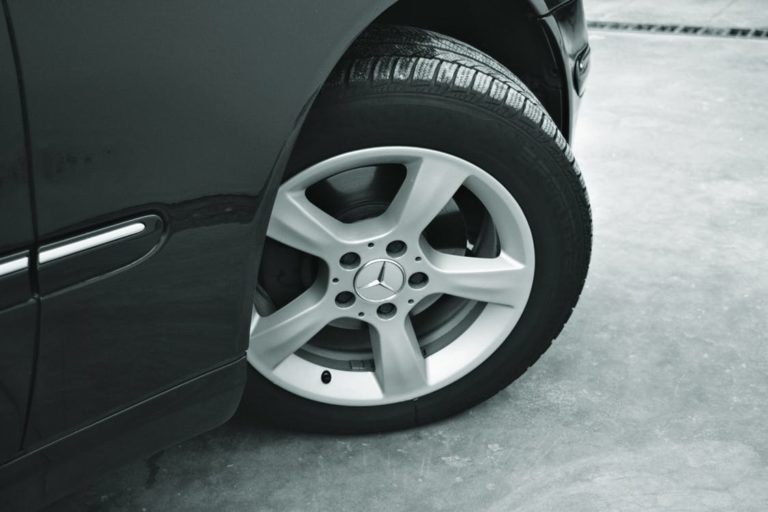You may have heard people or tire shops recommend nitrogen gas for filling your tires instead of compressed air, but is nitrogen better? It can depend a lot on your situation, but in most circumstances, there are benefits that may make you want to try using nitrogen to fill the tires on your car.
Nitrogen Versus Compressed Air
Compressed air in tires is about seventy percent nitrogen and twenty-one percent oxygen. Other atmospheric gases make up the other nine percent of the compressed air, so it is hard to control the expansion and contraction of the gas.
The nitrogen is an inert gas that will not expand or contract, but the oxygen is not. By removing everything but the nitrogen from the mix, the tire inflation is easier to maintain, no matter what the temperature or the atmospheric pressure is.
Tire Wear Effects
The tires on your car or truck are expensive, and anything you can do to keep tire wear even can reduce the cost of maintenance because the tires will last longer. Because nitrogen is not affected by the temperature of the tires or the air outside, changes in the tire profile or footprint are less common with a nitrogen-filled tire.
A more consistent tire can make a significant difference in the way your vehicle handles on the road as well. The amount of tread on the road is the most significant factor in how a tire handles, so if the pressure in the tire stays consistent, the handle will as well.
Keeping the proper inflation in your tires also reduces the drag on the tire and increases the fuel economy of the car.
Water and Tires
Compressed air has some water vapor in it, so filling your tires with compressed air introduces water inside the tire. The water vapor can cause changes in the inflation of the tire with humidity changes in the outside air.
Using nitrogen in the tire removes the presence of water vapor inside the tire. Since the water vapor can also promote corrosion on the inside of the wheel, removing it is the best way to protect the wheel from rust over time.
Nitrogen Fill Process
When you take your car or truck to the tire shop to have a nitrogen fill, the technician will use a special machine to purge all the air and other gasses out of the tires. The process involves removing the air and putting nitrogen into the tire, then removing the nitrogen and filling the tire again.
The cycle runs several times to ensure all the oxygen and other gasses are out of the tire before the final fill with nitrogen. Spending the money to fill your tires with nitrogen does not make sense if there are any contaminates in the tire, so the purge must be done correctly and completely.
TPMS (Tire Pressure Monitoring System) and Nitrogen
Many new cars come with a system that monitors tire inflation as you drive. The TPMS or tire pressure monitoring system will alert you to changes in the tire pressure so that you can correct the pressure as needed.
Often people wonder if the TPMS will function appropriately with nitrogen in the tire instead of compressed air. But the system only monitors the pressure, not the type of gas that provides that pressure.
The TPMS will need setting during tire inflation, just as it usually would. Once set, the system should work correctly.
At Evans Tire & Service Centers, we can help you understand the process of using nitrogen in your tires, and our technicians can convert your tires. Come by and see us and we can get you set up with nitrogen inflation and new tires if you need them.

